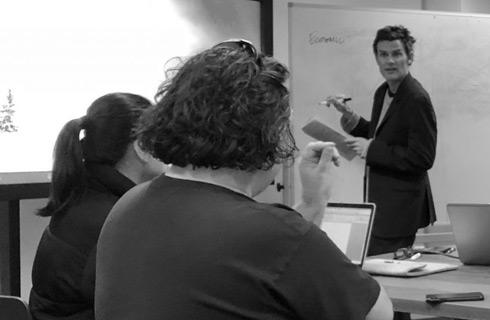国际学生入学条件
All international students will need to meet the minimum English Language Requirements, University General Entry Requirements and any course specific requirements such as pre-requisite subjects, if applicable.
English Language Requirements
This degree requires an IELTS (Academic) of 6.0, with no individual band less than 5.5, or a PTE Academic score of 50, with no score lower than 42 or equivalent.
For students who do not meet the English Language Requirement through citizenship or prior studies in English in an approved country, evidence of an approved English language test completed within the last 2 years must be provided. See the English Language Requirements page for more information.
General Entry Requirements
Admission to undergraduate courses at the University of Tasmania requires the completion of qualifications equivalent to a 12th year of education in Australia.
Please review the equivalent undergraduate entry requirements to see the minimum requirement relevant to your country. The ATAR information for this course is located in the “For Domestic Students” section of the entry requirements on this page.
You can also meet the General Entry Requirement for this course with the following qualifications or prior studies:
Completion of an equivalent AQF Certificate IV or above
Complete or incomplete (minimum 25 credit points) of previous tertiary study at Bachelor level or higher
TOEFL (iBT) - 72 (no skill below: Reading 10; Listening 9; Speaking 16; Writing 19)
展开
IDP—雅思考试联合主办方

雅思考试总分
6.0
了解更多
雅思考试指南
- 雅思总分:6
- 托福网考总分:72
- 托福笔试总分:160
- 其他语言考试:PTE Academic score of 50, with no score lower than 42 or equivalent.
CRICOS代码: 102979C
申请截止日期: 请与IDP顾问联系以获取详细信息。
课程简介
Double degrees allow you to deepen your knowledge and expertise within two separate study areas. This means you can choose from our range of exciting, diverse courses and embark on a journey as unique as you are. The Bachelor of Arts is the ultimate, flexible university degree. With over twenty named majors, you can select subjects to build your knowledge, and electives to enhance your skills. Our students are curious about the big questions of life, embrace the joy of open enquiry, and are on a life-long quest for knowledge and inspiration. At the University of Tasmania, you will be part of an academic community that cares deeply about the topics that we teach and study. To study law is to understand the importance of social justice and using the law to improve the health of our society and our planet. It is about developing high-level skills in legal techniques and a sensitivity to the way that those skills can be used to advance a range of interests. By learning to understand law as both a local and transnational affair, the commonalities amongst law and legal systems, as well as how context can shape laws and legal culture, you open doors to diverse careers in the practice of law in Australia and globally.<br><br>Crime is an issue that governments and communities face every day. To stop crime, we must examine how and why it happens. Criminology is the study of crime, criminality and criminal justice systems; it focuses on criminalisation as a process, the causes of crime, the social context of offending, crime prevention, systems of social control, and the punishment and rehabilitation of offenders. In this major you will explore the meaning of justice and the best ways to respond to crime and criminality while debating the role of the media, the contribution of parliaments and what really happens at crime scenes and in court rooms. Our case studies include examples from across the world as well as what happens in our local communities. We look at everything from cybercrime, murder and theft through to corruption and environmental crime. Over the course of this major you will come to understand the main features of criminology as an academic discipline and be able to apply criminological theories, concepts and evidence. You will learn to analyse the causes and responses to crime as well as critically evaluate explanations of crime at local, national and global levels. This major will provide the knowledge and skills to work in criminal justice agencies and develop initiatives and agendas for change. Some specific areas where you may find work include policing, crime prevention, corrections and policy research. Units can be studied both on-campus and online.
展开







 预科
预科 奖学金
奖学金 实习机会
实习机会 在校学习
在校学习 跨境学习
跨境学习 校园授课-线上开始
校园授课-线上开始 在线/远程学习
在线/远程学习


 墨尔本大学
墨尔本大学

 西悉尼大学
西悉尼大学

 新英格兰大学
新英格兰大学

 悉尼大学
悉尼大学

 维多利亚大学
维多利亚大学

 悉尼大学
悉尼大学































